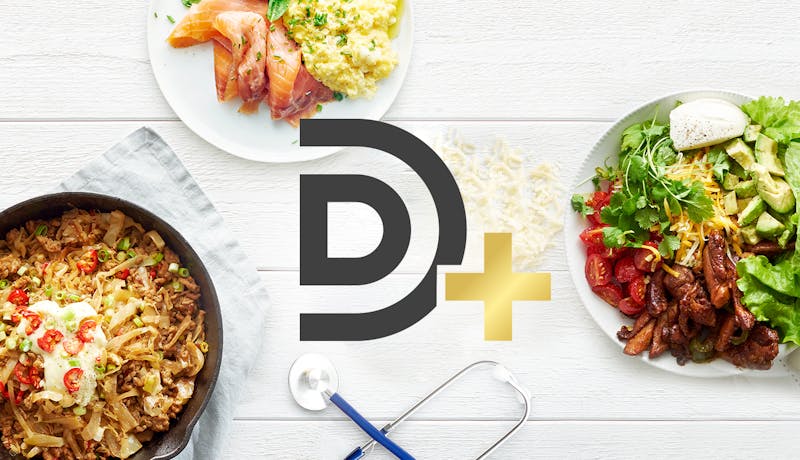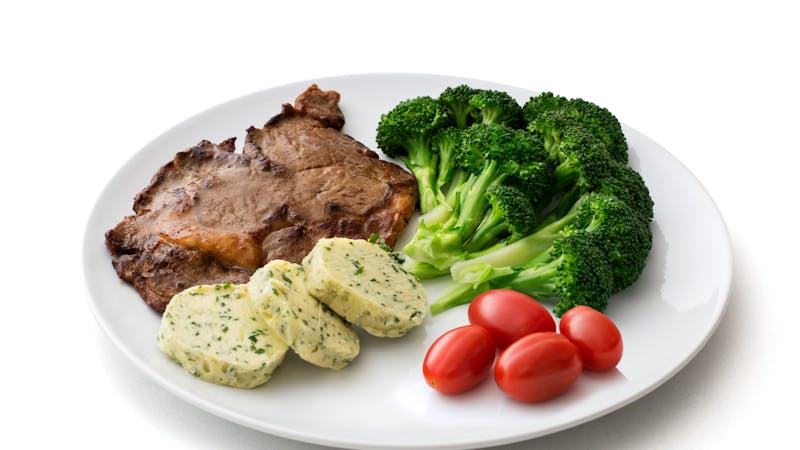How much fat, protein, carbs to eat on a keto diet?

Our Diet Doctor Facebook group is a forum for our members, where they can discuss all things keto or low carb.
What are some hot topics among our members? Here are the top three topics that trended in The Diet Doctor Facebook group last week:
1. How much fat, protein and carbs should I eat?
Do you have a hard time grasping how much to eat on a low-carb or keto diet? Then you are not alone, because many members have asked questions related to this in the Facebook group.
In the initial phase of a keto journey, it is sometimes recommended to keep track of foods in order to get a hang on the new way of eating. Maybe you feel uncertain and anxious about doing something “wrong”, and therefore you need a bit more structure to lean on.
Our moderator Kristin Parker captured the whole point if you happen to be a keto newbie:
For carbs, it depends on your metabolic health and other issues. Many people choose keto which is 20 g carbs max per day (moderate low carb is 50 g carbs a day). Most people need 1.2-1.7 g protein per kg of lean body mass/”ideal” body weight. So, as you can see, there’s a pretty wide range there where people can see success!
For people on keto, it generally breaks down to 20 g carbs max and then 20-25% of your calories from protein and 70-75% from fat.
You CAN overeat fat. If you eat past the point of full, to the point of feeling stuffed, or boredom eat when not hungry or add in too many snacks, you may hinder your progress.
Even though measuring has its place, perhaps your long-term goal should be to become so in tune with your satiety and hunger that external cues are not needed. The new way of eating should feel natural and intuitive, and you shouldn’t have to measure exactly how many grams of steak or broccoli you are ingesting at any meal. All you should need is some casual eyeballing to stay on your low-carb plan. Too full? Add less fat. Still hungry? Consider adding more protein, more tasty fat, or even more fibrous veggies (as long as you stay within your carb level). Just remember your basic goals:
1- Limit your carbs, 2- Eat an adequate amount of protein, and 3- Adjust your fat as needed.
If you still feel like diving deep into the topic of carbs, fat and protein on a low-carb or keto diet, check out our guides below.
Dealing with unsupportive friends and family
The odds are certainly stacked in your favor if family and friends are supporting your low-carb or keto eating (and maybe even doing it with you). However, many members express that they are not blessed with such fortunate circumstances.
Instead of being surrounded with a supportive keto network, you might be one of those who face the uphill battle of having to defend your way of eating and dealing with saboteurs.
Even though this is unfair, there are some ways to mitigate the issue. Here are our top suggestions, some of which have been suggested by moderators and members in the Facebook group:
- Practice assertiveness. Standing up for yourself is necessary for achieving your goals. Be polite, but don’t allow other people to dictate your path.
- Prepare. Cook in large batches and freeze to have quick keto-friendly dishes at your hand. Cook meals that have a keto-proof “base”, such as steak or salmon with a fatty sauce, and make one carb-rich option (like pasta/rice/potatoes) for your friends and family, and one keto substitute for yourself (like zoodles/cauliflower rice/rutabaga wedges). If you’re invited to someone else’s home, then offer to bring your own keto-friendly food.
- Lead by example. Never push the way of eating onto others. Instead, simply be a source of inspiration with your improved health. Who knows — maybe they will be so impressed that they decide to jump on board?
How do you handle people who are unsupportive? Leave a comment below.


